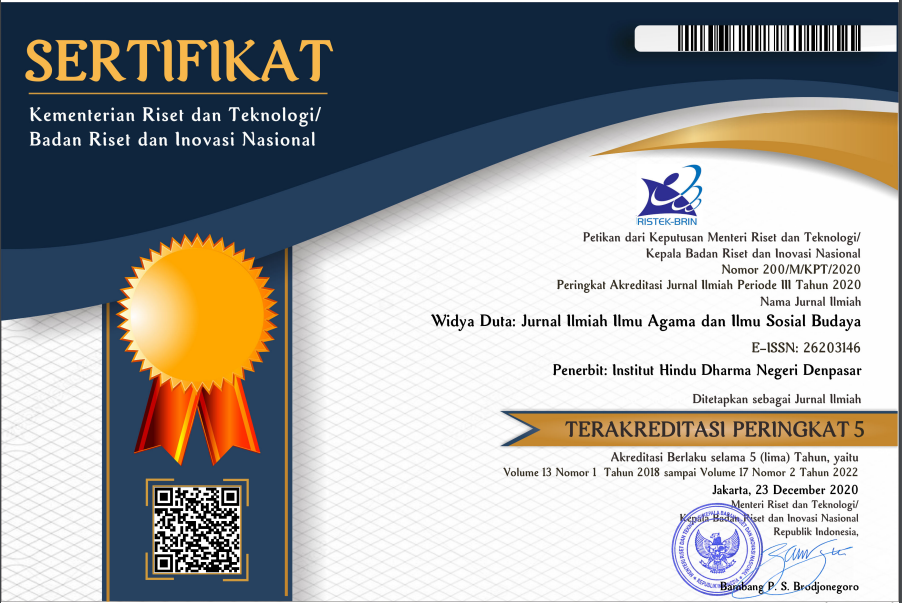Teaching Communication Strategy Tri Kaya Parisudha In The Establishment of Self-Image Students UKM Jegeg Bagus State Hindu University I Gusti Bagus Sugriwa Denpasar
DOI:
https://doi.org/10.25078/wd.v18i2.3084Keywords:
Communication Strategy, Tri Kaya Parisudha, Formation of Self Image, UKM students Jegeg BagusAbstract
The teachings of Susila study about individual behavior in good ethics. Behavior reflects the character of each individual in understanding Hindu religious values. But in reality the character and behavior of UKM students Jegeg Bagus not represent themselves as students Jegeg Bagus as a result the occurrence of deviations that are contrary to the teachings Tri Kaya Parisudha. So the importance of teaching values Tri Kaya Parisudha encourage effective communication strategies in forming a positive self-image. The formulation of the problem in this study is how the process, obstacles and implications of teaching communication strategies Tri Kaya Parisudha in the formation of self-image of UKM students Jegeg Bagus I Gusti Bagus Sugriwa State Hindu University Denpasar.This study uses a qualitative descriptive data method. Data collection techniques through interviews, observation and literature study. Data analysis techniques through data collection, data reduction, data presentation, data verification, and drawing conclusions. This study uses communication strategy theory, attribution theory and mass communication effect dependency theory.
The results of this study indicate that the process of communication strategy is formed from habits and experiences that students gain through namely; 1) the process of students joining UKM Jegeg Bagus, 2) implementation of teachings Tri Kaya Parisudha in the formation of self-image,consistency of self-image formation, and 4) UKM student activities Jegeg Bagus. Barriers from internal factors; confidence, motivation, interests and talents and SME fundingGood jegeg. External factors from the social environment such as family, association and society. Non-social environment of time management and communication. Cognitive implications, namely expanding beliefs through deepening students' knowledge, affective implications, namely positive impressions of self-image formed by students and behavioral implications, namely controlling the expectations of others emotionally in forming a positive self-image.




